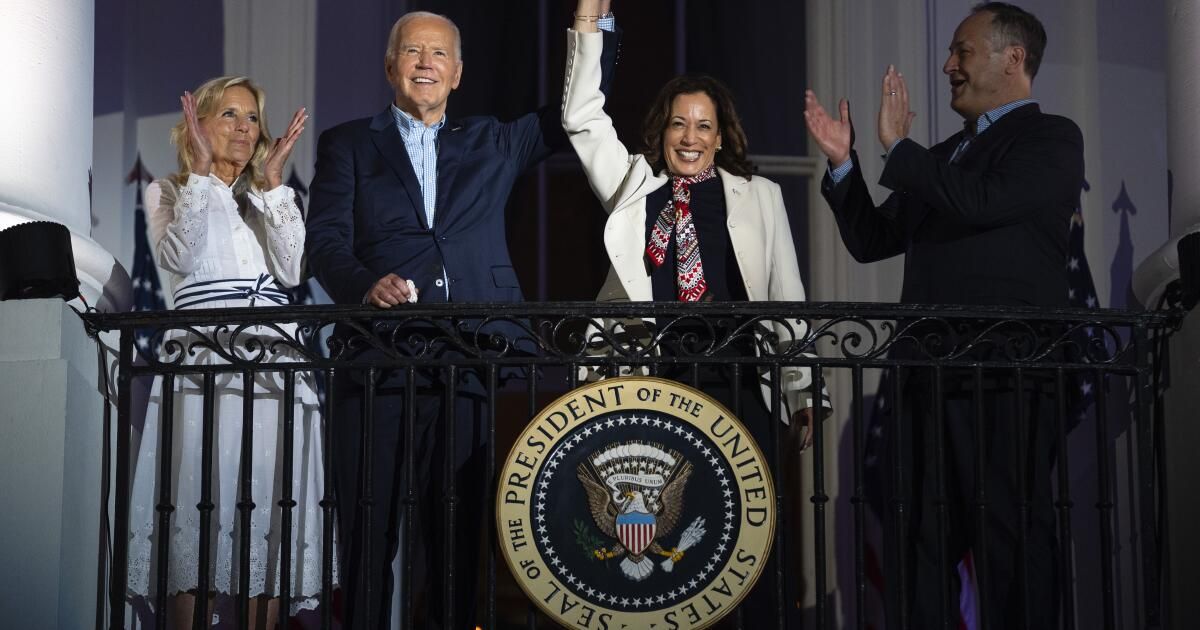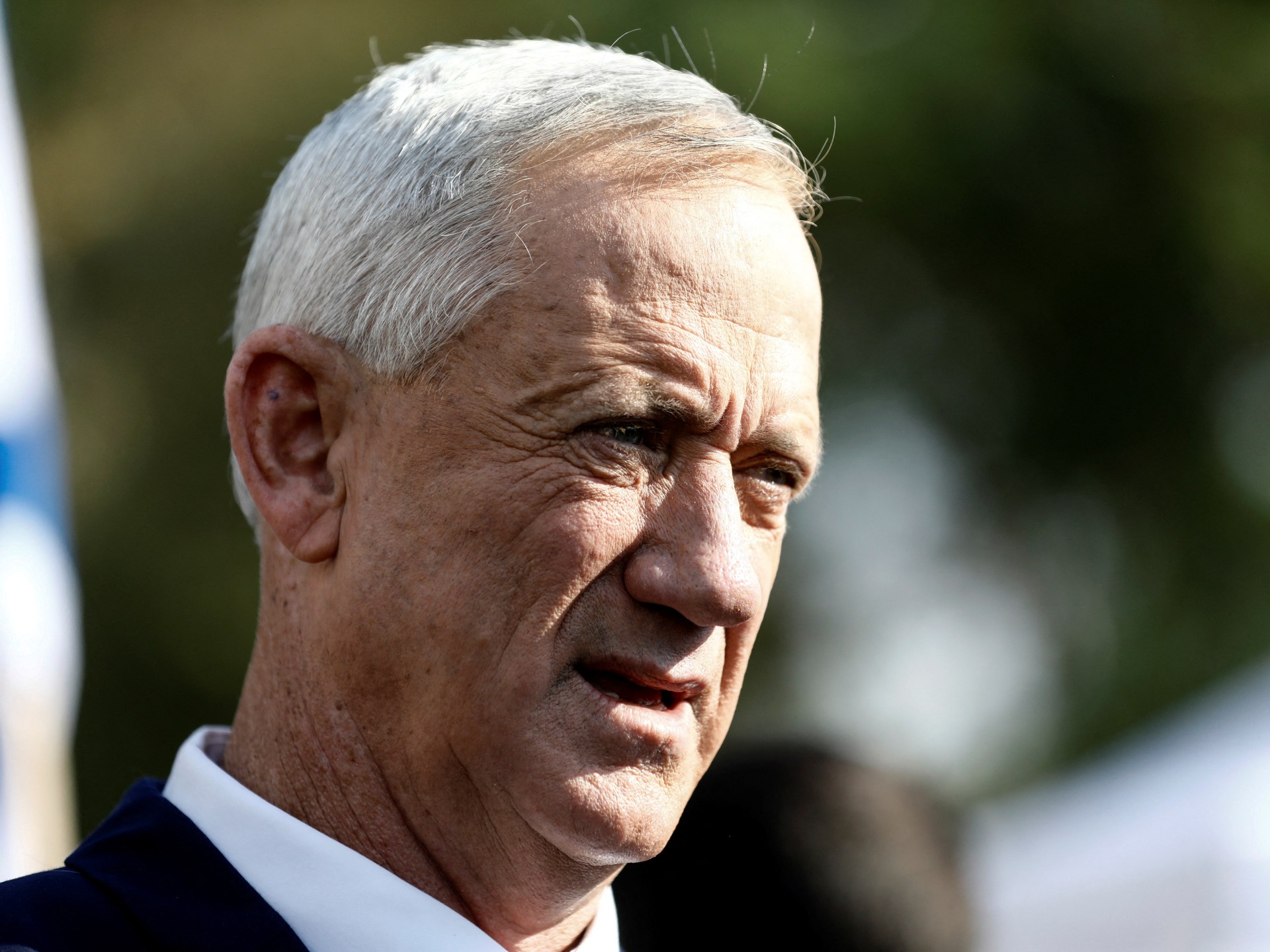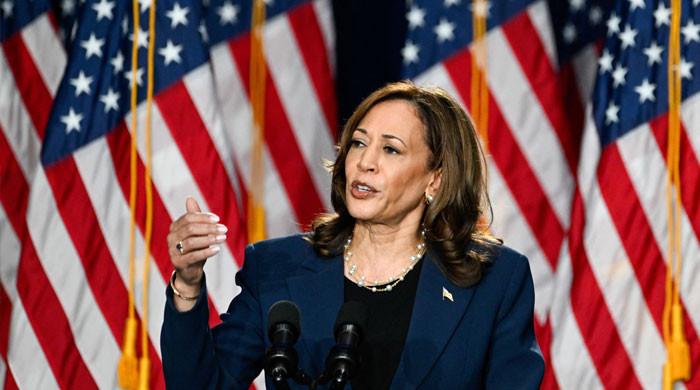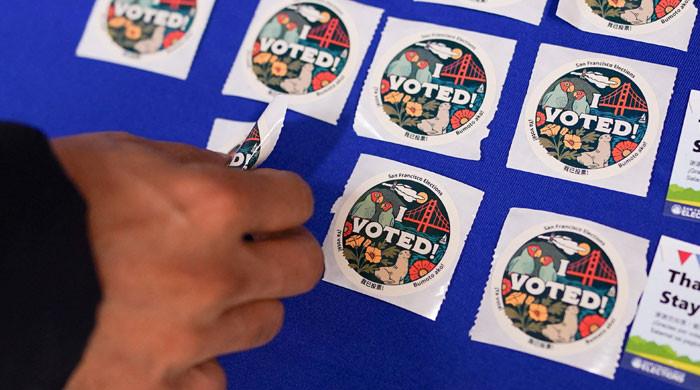President Biden's decision to lean Biden’s exit from the November election leaves a path for Vice President Kamala Harris to replace him, which would have seemed unlikely for most of the past three years, when she was seen as a drag on his reelection prospects because her approval numbers in polls lagged behind those of her boss.
But Democratic desperation and Harris's recent performance as a forceful government spokesperson and loyal deputy have turned her fortunes around. If she receives the nomination, Harris would be the first woman of color to lead a national ticket and, if she wins, the first female president.
Several recent polls show Harris holding a 1- or 2-percentage-point lead in a head-to-head matchup with former President Trump. Republicans, bracing for a possible Harris candidacy since Biden’s poor performance at the June debate, have been rehashing old videos of her, mocking her sometimes awkward public speaking style, blaming her for “covering up” for Biden’s frailty and linking her to the high number of arrests at the southern border that have occurred under Biden’s watch.
“Joe Biden has been the worst president in my lifetime and Kamala Harris has been by his side every step of the way,” Sen. JD Vance, an Ohio Republican and Trump’s running mate, said on social media platform X. “President Trump and I are ready to save America, whoever is at the top of the Democratic ticket. Bring them on!”
Following Biden's statement, Democrats appeared to rally around Harris. Bill and Hillary Clinton, the former president and secretary of state, issued a joint statement backing Harris and promising to do everything they could to support her election.
The Biden for President fundraising committee has changed its name to Harris for President. Former President Obama was notably reluctant to participate, calling on party leaders to “create a process that will produce an outstanding candidate.”
“She's going to be the strongest candidate,” said Donna Brazile, a former Democratic Party chairwoman and Harris ally.
Harris issued a statement praising Biden’s leadership and his “legacy of accomplishments… unmatched in modern American history.”
“I am honored to have the president’s endorsement and intend to win this nomination,” she said. “I will do everything in my power to unite the Democratic Party — and our nation — to defeat Donald Trump and his extreme Project 2025 agenda.”
Many anxious Democrats have clamored for other candidates, including Govs. Gretchen Whitmer of Michigan, Gavin Newsom of California or Josh Shapiro of Pennsylvania, worried that Harris will remain too polarizing a figure to win a majority of voters.
According to the latest polling average of 538, she has ground to make up on Trump and her national approval rating, while improving, remains at around 39%, compared with 50% of voters who disapprove of her. She also has ground to make up in key states, according to polls.
But Harris, 59, has the advantage of experience on a national ticket, direct access to the campaign fundraising apparatus and name recognition, all of which make her the favorite to secure what will be an unprecedented nomination for whoever wins. She can also campaign on the administration’s policy accomplishments, which Democrats believe are popular even if Biden, 81, is not.
“The advantage that vice presidents have is that they have depth and scope,” said Elaine Kamarck, a Democratic delegate and author of “Primary Politics: Everything You Need to Know About How America Nominates Its Presidential Candidates.”
Harris spoke with Biden several times before the announcement, according to a person familiar with the discussions.
Biden's opinion carries weight, but once he releases his delegates, they will not be bound to his wishes, meaning any number of candidates can try to win a majority of the more than 4,500 voting party delegates. In his Sunday letterBiden praised Harris as an “extraordinary partner.”
He endorsed Harris in a later post on X.
“My first decision as our party’s nominee in 2020 was to choose Kamala Harris as my Vice President,” he wrote. “And it has been the best decision I have ever made. Today I want to offer my full support and endorsement for Kamala to be our party’s nominee this year. Democrats, it’s time to come together and defeat Trump. Let’s do it.”
Another advantage for Harris is that many delegates have said they are eager for the process to go smoothly, given the chaotic weeks leading up to it. Whoever wins the nomination will also have to choose a running mate in time for the convention, likely from the same group of contenders for the top spot.
Despite Harris' built-in advantages, someone else could certainly make a run, added Kamarck, a fellow at the Brookings Institution think tank who worked as an aide to former Vice President Al Gore.
Born in Oakland to immigrants from Jamaica and India, Harris has had a steady rise in Democratic politics, from elected district attorney of San Francisco to attorney general of California, U.S. senator and then vice president.
He now resides in Los Angeles when not at the vice president's official residence at the Naval Observatory in Washington.
Harris came into the 2020 presidential primary with huge expectations, seen by many in the party as the fresh face of the future, but her campaign faltered before votes were cast amid staff infighting and a sense that Harris lacked core ideological convictions. For example, she struggled to explain her position on the debate over universal health care, which was a defining issue for progressives.
Biden, by choosing her as his running mate, reinvigorated her political career. She proved to be a skilled campaigner in a supporting role. But as vice president, she experienced high staff turnover and had to compete for influence with longtime Biden advisers (some of whom distrusted her after she attacked Biden in the 2020 primaries). As the first Black and Indian American woman to serve as vice president, she also had to contend with racial and gender bias.
Her initial top task for Biden — stemming migration by improving conditions in Central America — became a political headache when she appeared to try to avoid responsibility for the record number of migrants apprehended at the border and stayed away from policy debates on Capitol Hill.
Newsletter
Get our LA Times politics newsletter
The latest news, analysis and insights from our policy team.
You may occasionally receive promotional content from the Los Angeles Times.
During a trip to Guatemala and Mexico in 2021, he told migrants, “Don’t come,” angering the left, and then laughed off questions about why, at that point, he had not yet visited the border, inflaming the right. The first impression was a setback given the relatively few opportunities vice presidents have to capture the public’s attention.
Harris improved her standing in the party in 2022, when the Supreme Court struck down the legal right to abortion and she became the leading voice of opposition to the administration, helping Democrats exceed expectations in the 2022 midterm elections. She also began traveling more abroad, representing Biden in Europe amid the Russian invasion of Ukraine and in Asia as part of a broader strategy to counter Chinese influence.
Unlike other vice presidents, who had time to adjust to the role during their first term, Harris was immediately under pressure to prove she could replace Biden, the oldest president in U.S. history, said Joel Goldstein, an expert on vice presidents. It was also a rarity in the modern era, when most vice presidents have more experience in government than their boss.
“If Vice President Harris becomes kind of a determined standard-bearer for 2024, I think she will have visibility and importance and people will look at her in a way they haven’t looked at her before,” Goldstein said.
He'll need a second look. In focus groups, many voters say they don't know what he's doing. And his results are similar to Biden's among key voter groups in recent polls conducted by Suffolk University's David Paleologos for USA Today.
Harris was viewed favorably by 30% of independents and unfavorably by 57% in a national poll conducted after the debate in late June, compared with a 35%-62% split for Biden.
Polls conducted in early June among Black and brown voters in Michigan and Pennsylvania (two battleground states) showed that only 55% to 60% of those voters viewed her favorably, similar to Biden’s numbers. He and Harris earned more than 90% of Black voters’ support in 2020, according to exit polls.
Paleologos said Harris has a little more room to increase support compared to Biden, but it's still an uphill climb.
“Kamala Harris could generate enthusiasm, maybe not to the level that Trump generated,” he said. “That’s a big deficit right now.”












